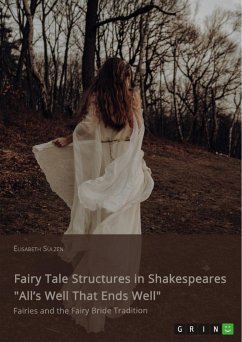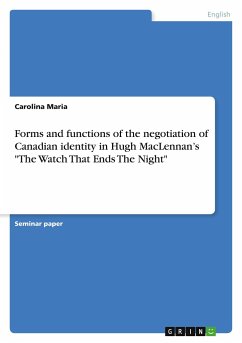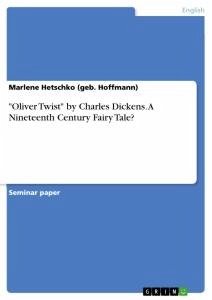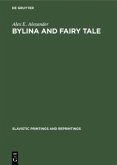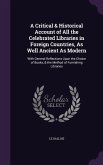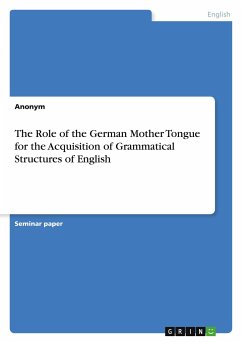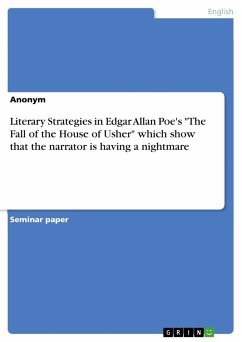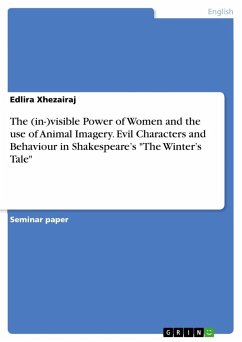Seminar paper from the year 2020 in the subject English Language and Literature Studies - Literature, grade: 1,7, LMU Munich (Department of English Studies), course: Shakespeares Problem Plays, language: English, abstract: This paper examines the different fairy tale motives in Shakespeares comedy "All's Well that Ends Well". It especially focuses on the aspects that could mark women, and most visibly the Helena as a fairy or fairy bride. The cure-for-a-husband deal, the fulfilling of tasks, the supposed death and return, as well as the fairy bride tradition are discussed over the course of this paper. The main plot of Shakespeare¿s All¿s Well That Ends Well (first published in 1623) is heavily inspired by the ninth story of the Third Day of Boccacciös "Decameron", but that is not the only source the famous playwright used while writing this comedy. There are many similarities to English and Italian folktales to be discovered, but it can be difficult to trace back where the different tales came from and exactly how the stories used to be told. One reason for this is, that they were mainly transmitted orally up to the 19th century. Only then, scholars like the Brothers Grimm started collecting popular tales and writing them down. Also, England did not systematically use popular lore to assert national identity. During Queen Elizabeth I¿s aggressive colonization campaign in Ireland and Scotland, the cultures mixed and so did the fairy tales.
Hinweis: Dieser Artikel kann nur an eine deutsche Lieferadresse ausgeliefert werden.
Hinweis: Dieser Artikel kann nur an eine deutsche Lieferadresse ausgeliefert werden.

